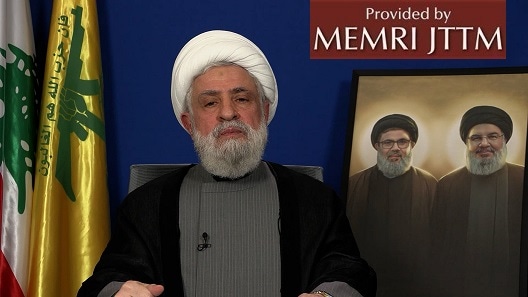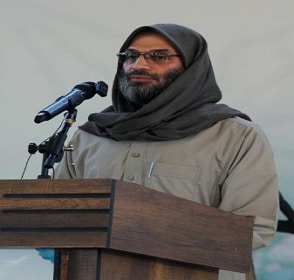The following report is now a complimentary offering from MEMRI's Jihad and Terrorism Threat Monitor (JTTM). For JTTM subscription information, click here.
On November 20, 2024, the Secretary-General of Lebanese Hizbullah, Naim Qassem, delivered a televised speech in which he said that his group submitted its response to the American proposal for ceasefire with Israel to the U.S. Envoy, Amos Hochstein.

"We received the negotiations paper, read it, and made comments on it. [Parliament] Speaker Berri has comments, and our comments are harmonious," he said.
Qassem indicated that his Hizbullah decided not to disclose the nature of its comments on the American proposal to the media.
He further explained that Hizbullah will not agree to a ceasefire deal that does not include ending the "aggression of the Israeli enemy completely" and "preserve Lebanon's sovereignty."
Qassem argued that no one can guarantee a ceasefire deal because "the issue depends on the Israeli response and [PM Benjamin] Netanyahu's seriousness."
"Hizbullah Negotiates From A Position Of Strength"
Addressing Hizbullah's military activity, Qassem said his group will attack central Tel Aviv in response to the killing of its media relations chief Mohammed 'Afif in an Israeli strike on a building in central Beirut on November 17.
"We cannot leave the capital [Beirut] under the blows of the Israeli enemy, unless it pays the price in the middle of Tel Aviv," he said.
He stressed that "the resistance has the ability to continue at this pace for a long time," noting that Hizbullah is negotiating from a position of strength."We have prepared for a long battle, and we are currently negotiating not [because we are] under fire as is said, because Israel is also under fire."






